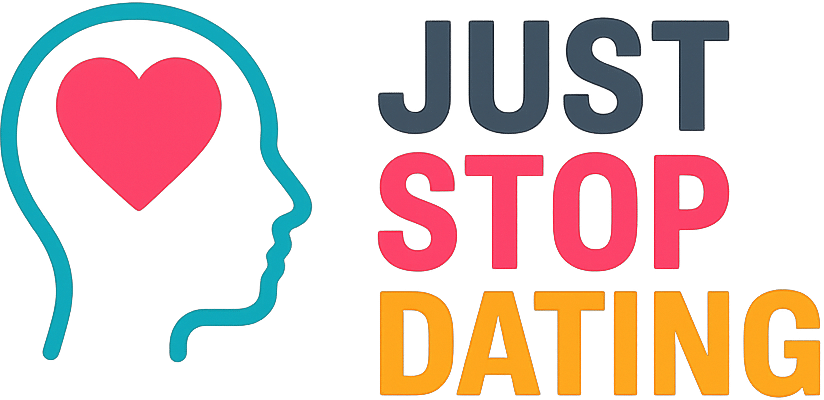Unrequited love refers to a one-sided emotional experience in which one person feels romantic attraction, longing, or attachment toward another who does not reciprocate those feelings. It often involves idealization, persistent hope, and emotional investment in the absence of mutual connection. Though commonly romanticized in literature and media, unrequited love can lead to emotional distress, rumination, and decreased self-worth especially when the individual projects meaning onto ambiguous signals or avoids emotional closure.
Unrequited Love
| |
|---|---|
| Category | Relationship Milestones, Psychology |
| Key Traits | Idealization, emotional longing, non-reciprocity, attachment without return |
| Common Outcomes | Rumination, disappointment, personal growth, emotional clarity |
| Psychological Correlates | Anxious attachment, romantic projection, reward anticipation |
| Common Dynamics | Friendship crushes, parasocial infatuation, ambiguous flirtation |
| Sources: Baumeister et al. (1993); Aron et al. (2001); APA (2011) | |
Other Names
one-sided love, romantic longing, unattainable affection, emotional pursuit, love without return, unreciprocated feelings
History
Classical and mythological roots
Unrequited love appears in ancient myths (e.g., Echo and Narcissus) as a symbol of emotional imbalance. In Greek tragedy, such longing was often tied to moral failure, divine punishment, or eternal yearning.
Medieval and Renaissance romantic ideals
Courtly love in medieval literature celebrated distant, often unavailable figures. This period elevated unreciprocated desire as noble, spiritual, or redemptive even when it caused suffering.
Modern psychology and emotional development
In contemporary studies, unrequited love is linked to self-esteem, attachment style, and emotional processing. It is explored as both a painful and transformative experience that offers insight into personal needs, projections, and boundaries.
Biology
Dopamine and reward uncertainty
The brain’s reward system particularly the ventral tegmental area and nucleus accumbens responds strongly to intermittent or unavailable rewards. This may explain why longing for someone emotionally distant can intensify desire.
Stress and emotional dysregulation
Unreciprocated love can activate the HPA axis, increasing cortisol and leading to sleep disruption, appetite changes, and emotional volatility. These physiological responses mirror grief and rejection sensitivity.
Oxytocin imbalance and imagined bonding
Oxytocin, the bonding hormone, may be released through fantasies, eye contact, or brief social interactions—even without real intimacy. This strengthens the illusion of closeness and prolongs emotional attachment.
Psychology
Idealization and romantic projection
Unrequited love often involves projecting ideal traits onto another person. Rather than seeing them clearly, the individual creates a narrative that fulfills internal desires, unresolved wounds, or fantasies of rescue.
Attachment style and persistent hope
Anxiously attached individuals may hold onto hope, interpreting minimal cues as signs of interest. Avoidant types may pursue unavailable partners to avoid real vulnerability. These dynamics reflect deeper relational scripts.
Rejection sensitivity and emotional loops
Repeated emotional rejection can trigger rumination, intrusive thoughts, and lowered self-worth. Without conscious processing, this loop may reinforce beliefs of unworthiness or dependence on external validation.
Sociology
Media romanticization of one-sided love
Films and novels often portray unrequited love as noble or redemptive, reinforcing the idea that persistence leads to reciprocation. This misrepresents healthy relational pacing and boundaries.
Power imbalance and pursuit norms
Cultural scripts sometimes reward relentless pursuit, especially from men, even when the other party is disinterested. This can reinforce entitlement, boundary violation, or internalized silence about rejection.
Parasocial relationships and emotional substitution
In the digital age, individuals may develop romantic feelings for influencers or celebrities who remain emotionally inaccessible. These relationships feel vivid but lack mutual reality, reinforcing projection and isolation.
Relationship Impact
Blocks available intimacy
Fixation on someone emotionally unavailable can delay or sabotage connection with partners who are actually aligned and present. Energy is spent maintaining fantasy rather than building reality.
Delays emotional closure
Unrequited love often creates lingering emotional threads that include hopes for change, imagined connection, or symbolic meaning. Without conscious processing, these threads delay emotional integration and dating readiness.
Promotes growth through grief
While painful, unrequited love can become a catalyst for emotional clarity, boundary work, and self-worth. It prompts individuals to reassess what they want, how they love, and what they need in return.
Cultural Impact
Art, music, and literature themes
Artists have long drawn from unrequited love to express longing, pain, and transformation. It appears across centuries in poetry, opera, pop music, and visual arts as a universally resonant theme.
Gendered suffering and romantic myths
Narratives often frame female suffering as proof of depth, while male pursuit is cast as noble persistence. These archetypes reinforce imbalance and discourage healthy disengagement from non-mutual situations.
Key Debates
Is unrequited love toxic or meaningful?
It can be either, depending on how it is processed. When romanticized or prolonged without clarity, it causes harm. When reflected upon, it can foster emotional growth and identity development.
Should you confess unrequited love?
Disclosure may provide closure or create discomfort. The decision depends on context, boundaries, and the receiver’s signals. Some situations benefit from silence; others from honest communication.
Is emotional pain from rejection normal?
Yes. The brain processes social rejection similarly to physical pain. Grief, shame, and longing are common reactions but they do pass with emotional support, time, and reflection.
Media Depictions
Film
- 500 Days of Summer (2009): Follows Tom’s emotional journey through projected love, misinterpretation, and eventual growth after rejection.
- Her (2013): Theodore forms an intense bond with an AI, highlighting projection, fantasy, and longing for reciprocation in a one-sided dynamic.
- My Best Friend’s Wedding (1997): Julianne’s delayed confession of love results in rejection and eventual self-reckoning.
Television Series
- The Office (U.S.): Pam and Dwight’s early storylines explore emotional distance and denial before mutual feelings emerge much later.
- Normal People (2020): Conveys longing and misalignment across multiple stages of love, timing, and emotional availability.
- BoJack Horseman (2014–2020): Features several arcs of unreciprocated emotional investment, including BoJack’s fixation on unavailable partners.
Literature
- Wuthering Heights by Emily Brontë: Portrays obsessive, unreciprocated love as both haunting and destructive.
- Norwegian Wood by Haruki Murakami: Explores emotional absence and grief tied to romantic longing and death.
- The Great Gatsby by F. Scott Fitzgerald: Gatsby’s pursuit of Daisy exemplifies idealization and refusal to accept nonreciprocation.
Visual Art
Themes of unreciprocated love often appear in solitary figures reaching, blurred or unfinished portraits, and visual contrasts between proximity and distance. Artists convey tension between desire and emotional vacancy through shadow, composition, or fragmentation.
Research Landscape
Current research on unrequited love focuses on neural correlates of social rejection, attachment behaviors, and the emotional consequences of ambiguity. Studies also examine how media depictions influence cultural scripts around love, suffering, and closure.
- Opioid-Induced Regulation of Cortical Circular-Grin2b_011731 Is Associated with Regulation of circGrin2b Sponge Target miR-26b-3p
- Daily Administration of Agmatine Reduced Anxiety-like Behaviors and Neural Responses in the Brains of Male Mice with Persistent Inflammation in the Craniofacial Region
- Emotional Trade-offs of Neural Sensitivity to Social Threat and Reward in Adolescent Girls
- Emotional Dysregulation and Emotional Eating in Hospitalized Adults with Obesity: The Mediating Role of Worry and Rumination
- Lived experiences of Malaysian family caregivers of patients with chronic illnesses: A qualitative study
FAQs
What is unrequited love?
It is when one person feels romantic or emotional attraction toward someone who does not return those feelings. The connection is one-sided.
Why does unrequited love feel so painful?
It activates brain regions tied to reward and rejection, causing distress, longing, and emotional dysregulation each similar to grief or loss.
Can unrequited love turn into mutual love?
In rare cases, but most one-sided love remains unbalanced. Waiting for reciprocation often delays closure and causes emotional harm.
How do I move on from unrequited love?
Process the grief, name the projections, focus on aligned relationships, and redirect emotional energy toward self-worth and clarity.
Is it common to experience unrequited love?
Yes. Nearly everyone experiences it at some point. It can be painful but also provides insight into emotional needs and relationship expectations.




